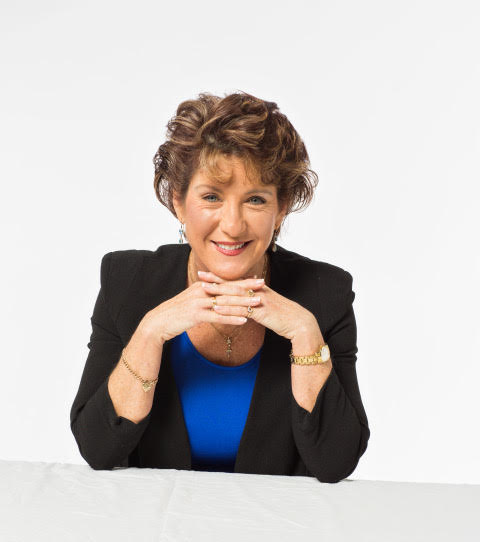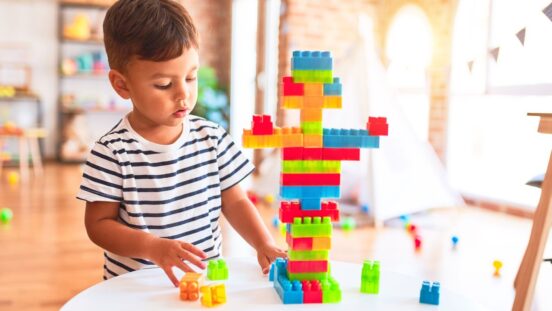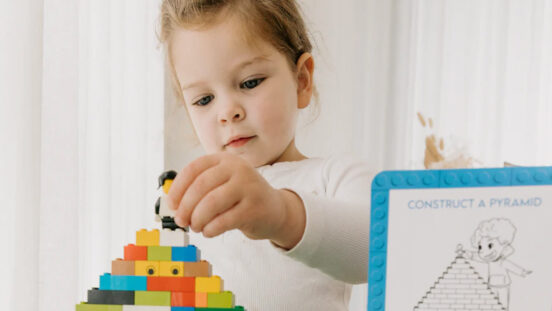Why the language we use around toddlers is so important for their happiness
Sticks and stones ...
By Dr Karen Phillip
Most parents all want the very best for their child. They want their child to grow and develop into caring, kind, confident and balanced little people.
However saying certain things in earshot of your toddler can be harmful. Any unfavourable comment regarding a child’s actions or behaviour can embed this as being correct in your child’s mind.
A child is only learning who they are, what they can do, how good or bad they are, and if they are loved and accepted unconditionally. All these feelings accelerate and embed between ages two to five.

Dr Karen Phillip is an expert in the fields of relationships, parenting and communications and has helped thousands of couples and families resolve problems ranging from communication conflicts to parenting issues.
How things can be confused in the child’s mind
If our child can hear us, the things we say can have such a negative effect, unintentionally, especially if we think we are protecting them. Many parents believe truth is essential, and while this is correct, colouring in the truth is sometimes better for the toddler to hear.
Some examples of the negative talk that toddlers shouldn’t hear are:
- Poppy might say, wow you should have seen him eat his dinner with his spoon today, so clever. A parent responding with gosh that’s great, he makes such a shocking mess when he does it with me.
- Nana says wow she was incredible doing her spinning dance today. A parent responding with, fabulous, she usually falls flat on her face when she does it here.
- Perhaps even a comment such as Nana saying, he swam in the pool today all by himself with his bubble on, he was so brave and clever. A parent responding with, yes tremendous but I bet he won’t do it in the big pool, he will be scared in the big pool compared to your smaller pool.
All of these parent comments can have a devastating effect on the child’s self-belief and confidence. With kids around, walls have ears. Even when they are sleeping their subconscious mind remains attentive, therefore, saying things in front of a sleeping child can be heard within the subconscious and create a misinformed self-belief.

Negative commentary can have a devastating effect on a child’s self-belief and confidence.
How to change a negative into a positive
We know the above parent comments are truthful, for the parent, not for the child. We want our children to believe they can do anything. We need them to know they have the excellent ability when they try, succeeding or not is irrelevant. These are the positive steps a child needs to hear.
A parent recently commented to me that their partner catastrophises everything. If something small went wrong, then the whole world and life were unfair. If a child was in a bad mood or through a little tantie, they were hysterical – most times with the child within earshot. While a child may not understand the word hysterical, the manner of delivery can be sensed. Young children have an uncanny way to read body language and hear tonality, somewhat concerning at times.
Parents, once aware of this, can adjust their language statements and turn fear and negativity into positive reinforcement. Negative comments can be modified to mean the same thing yet sound so incredibly positive for the child, such as in the above three examples:
- With Poppy saying, wow you should have seen him eat his dinner with his spoon today, so clever. A parent responding with gosh that’s great, he makes such a shocking mess when he does it with me. “You ate your dinner and got it in your mouth today at Poppy’s, my goodness how clever and grown-up you are becoming.”
- Nana says wow she was incredible doing her spinning dance today. A parent responding with, fabulous, she usually falls flat on her face when she does it here. “Wow, you did your spinning dance today and stayed on your feet, that is so tricky to do, and you did it this time, congratulations you clever girl.”
- Nana saying, he swam in the pool today all by himself with his bubble on, he was so brave and clever. A parent responding with, yes tremendous but I bet he won’t do it in the big pool, he will be scared in the big pool compared to your smaller pool. “Incredible, you swam all by yourself in the pool. I can’t wait for you to show us that when we go to the big pool.”
Regardless of your child makes a mess at dinner, slips when spinning or is a little apprehensive in the larger pool, the message remains constant. Your child is capable, tries hard and sometimes makes it.
Building self-belief, self-confidence and self-esteem can be relatively easy if parents get their responses right. And we all want that for you kids.
Listen to what you say. Agree with your partner that if either of you is heard to say a negative comment, a gentle reword or “what daddy/mummy meant to say was ….. “and allow this gentle reminder to help you adjust your perhaps habitual negative responses.
You can find out more about Dr Karen at www.drkarenphillip.com
WATCH: Minnie Mouse uses sign language to say ‘I love you’ to deaf toddler




